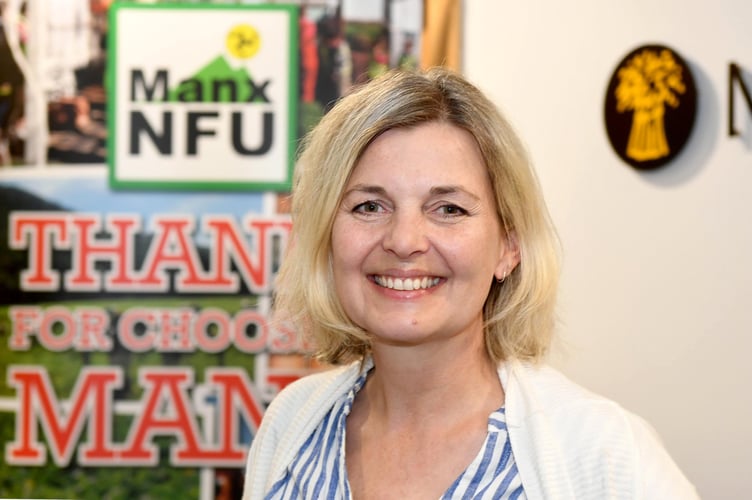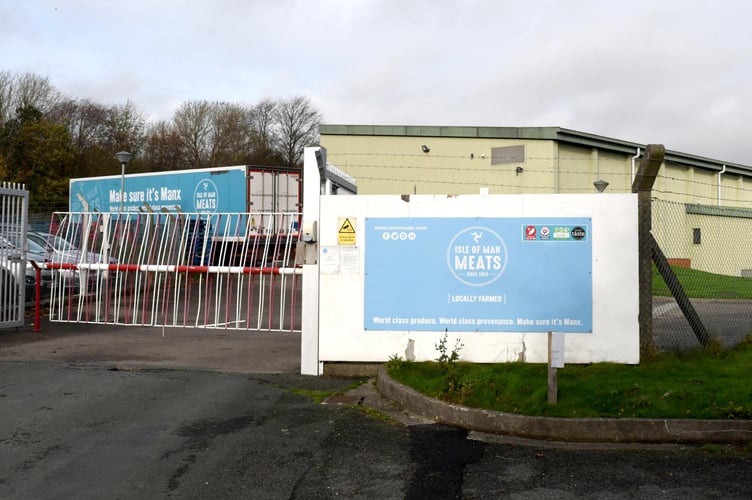The Manx National Farmers’ Union has declared it has no confidence in the management of the Meat Plant.
In a hard-hitting open letter, the Manx NFU’s general secretary Sarah Comish said the ‘disastrous impact’ of Isle of Man Meats’ ‘continued mismanagement’ of the government-owned and subsidised abattoir can no longer be borne by the livestock industry which she said was in an ongoing crisis.
‘The once excellent reputation of Manx meat has all but been destroyed,’ she said. ‘Confidence in the plant’s ability to service the industry, the retailers and consumers has now hit rock bottom.’
She said that it was ‘with regret’ that the Manx NFU must declare no confidence in Isle of Man Meat’s ability to manage the facility effectively, and that immediate action must be implemented to ‘repair the damage imposed on the agricultural industry and the local food supply chain.’
In response, the board of Isle of Man Meats said they had inherited ‘embedded’ issues which will take time to resolve.
The MNFU says frequent cancellations and delays have continued to increase at the Meat Plant and reducing intake has forced farmers to either hold stock far longer than they can afford to, or export.
It says this is having a knock-on effect on other industries and organisations that provide services to the Meat Plant and agricultural sector. Trade customers have struggled to fulfil orders and have had to seek produce from elsewhere.
Earlier this year, Isle of Man Meats confirmed it had to recall beef and destroy meat after an investigation by the environmental health unit identified concerns with certain processing practices.

In June we reported how Kirk Michael butcher Lee Mayers had started to order meat from across because he could no longer rely on the Meat Plant meeting delivery orders.
‘The stress on individual producers and businesses is already having an impact. The situation is rapidly declining and the ongoing repercussions of this will be felt for a long time,’ said Ms Comish.
‘Significant quantities of product have been disposed with questionable excuses as to why. This is particularly difficult to comprehend when there is a strong market for beef and lamb across the UK. Dumping of product to the Animal Waste Processing Plant in such quantities was unheard of prior to the current tenure.’
The loss-making Meat Plant relies on an annual government subvention of about £2m.
A damning report in 2022 highlighted significant failings and led to the current board being appointed and a ‘change programme’ being implemented.
Ms Comish said: ‘It is vital to the industry that the Meat Plant is kept open and functions well.
‘The change programme implemented following a period of imposed instability and chaos has not delivered. Rather it has had the opposite effect.
‘Levels of communication are abysmal. Refusal to meet with the industry and lack of acknowledgement of the now dire situation are appalling.’
In a statement Isle of Man Meats said: ‘The board acknowledges the recent open letter from ManxNFU, and wish to make it clear that we understand the seriousness of the concerns which have been raised.
‘Isle of Man Meats is in a period of change as a result of the embedded, inherited issues that are not easily resolved. It will take time to overcome these issues by their very nature.
‘We wish to reassure our stakeholders, including ManxNFU, that we remain focused on working towards common goals which – in the long-term – will benefit the island’s farming and food sectors.
‘As highlighted in the open letter, as a board we are very much aware that we are approaching a peak period of intake, so we are doing everything we can to balance the needs of the producers with a sustainable financial business model that is fair and equitable for all stakeholders.
‘Isle of Man Meats remains committed to working with all our key stakeholders in the supply chain to build a strong, sustainable future for the island’s food security.’


.jpeg?width=209&height=140&crop=209:145,smart&quality=75)

